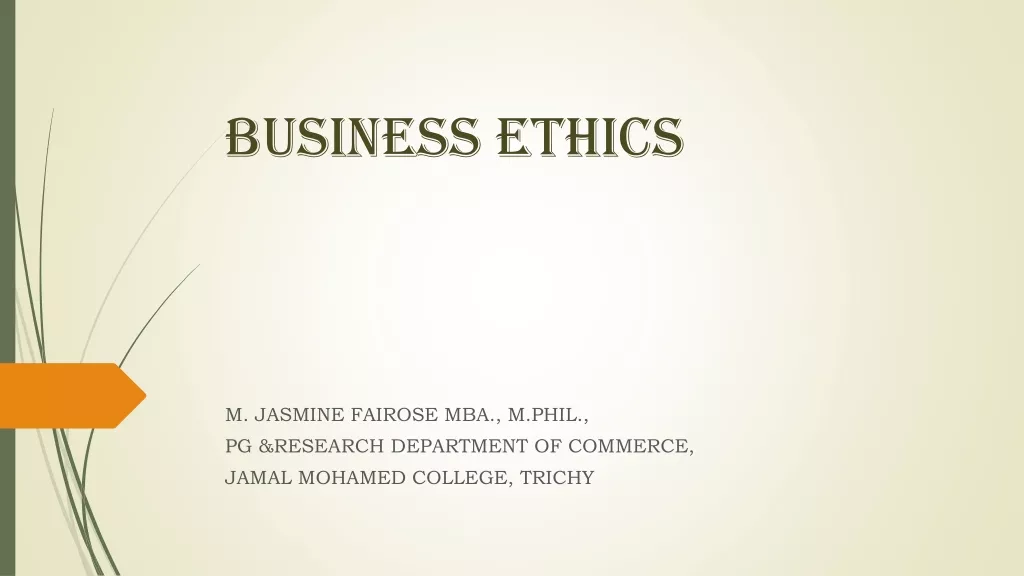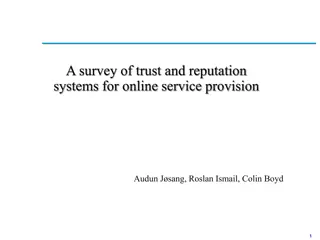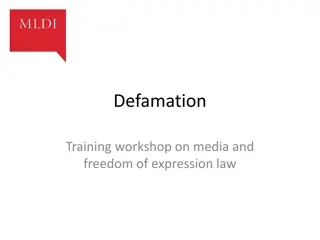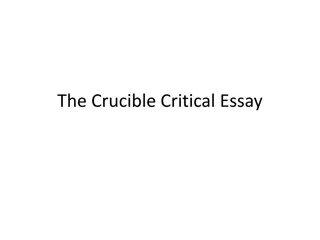Importance of a Good Reputation in Business
Understanding the benefits of a good reputation for an organization is crucial. A good reputation in business can lead to loyal customer base, increased sales, and reduced marketing expenses. Conversely, a poor reputation can result in loss of business and profits. Building a good reputation involves attracting customers, addressing issues promptly, and listening to feedback. It is essential for organizations to focus on maintaining a positive image to enjoy the various benefits associated with a strong reputation.
Download Presentation

Please find below an Image/Link to download the presentation.
The content on the website is provided AS IS for your information and personal use only. It may not be sold, licensed, or shared on other websites without obtaining consent from the author.If you encounter any issues during the download, it is possible that the publisher has removed the file from their server.
You are allowed to download the files provided on this website for personal or commercial use, subject to the condition that they are used lawfully. All files are the property of their respective owners.
The content on the website is provided AS IS for your information and personal use only. It may not be sold, licensed, or shared on other websites without obtaining consent from the author.
E N D
Presentation Transcript
Customer Service LEVEL TWO MISS. BERRY JOHNSON UNDERSTAND THE BENEFITS TO AN ORGANIZATION OF HAVING A GOOD REPUTATION
Objectives DESCRIBE THE BENEFITS OF A GOOD REPUTATION FOR AN ORGANIZATION. EXPLAIN HOW AN ORGANIZATION CAN BUILD A GOOD REPUTATION. EXPLAIN WHAT CAN DAMAGE AN ORGANIZATION'S REPUTATION.
Reputation Oxford Dictionary defines reputation as The beliefs or opinions that are generally held about someone or something. Whether your business has a good reputation or a bad reputation is up to you.
Good reputation in business A good reputation means the organisation has a loyal customer base and through word of mouth from those customers can increase this customer base.
Why is reputation important in a business? A good reputation not only makes you money, but also helps save on marketing expenses. The mechanism for building a good reputation is like a chain containing small, interconnected pieces. Customers feedback form this chain. At the end of your chain is a positive or negative business reputation. When you have a good reputation, you may not need to spend a fortune on marketing. Why? Because your customers act as brand ambassadors promoting your business to their friends, family and colleagues.
Benefits of a good reputation The benefits of a good reputation can be: repeat business/brand loyalty increased sales referred business fewer complaints increased market share new customers reduced staff turnover increased compliments job satisfaction and staff motivation
Consequences of poor reputation in business Having a poor reputation leads to: a loss of business (customers) a downturn in profits that is difficult to change
How an organisation can build a good reputation? To build a strong reputation means that an organisation has to attract customers to use its products or services, put things right if they go wrong, create a positive impression and build its reputation over time. To improve its reputation an organisation has to listen to its customers, meet their needs and expectations and respond to feedback. To build a good reputation an organisation should also provide a consistent and transparent service offer and have a fully trained and professional staff to implement this, monitoring the effectiveness of this service offer over time.
What can damage an organization's reputation? Damage to an organization's reputation can be caused in many ways. Customer expectations are influenced by the experience they expected from the organisation and from experiences they have had in similar service sectors eg hotels, restaurants, supermarkets, travel. The way an organisation deals with customers, the service it gives, the quality of the products/service offered and how customers are dealt with should problems occur, all impact on an organization's reputation. All customer experiences, good and bad, will build into an overall impression of the quality of an organisation.
What can cause damage a companys reputation? An organization's reputation can be damaged by: poor value for money inefficient or untrained staff poor quality of products poor service products not fit for purpose poor staff attitude disclosing customer details/information not fulfilling promises therefore betraying customer trust unethical practices.




















